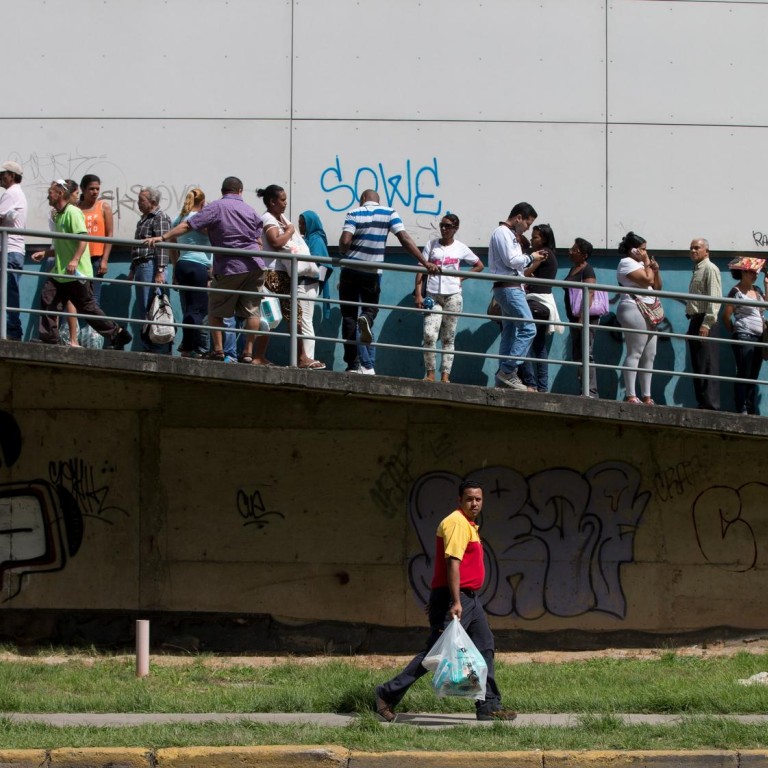
Venezuelan president Maduro drives gasoline price hike
Facing a recession and plummeting crude prices, Venezuelan President Nicolas Maduro said he was willing to take tough steps to steady the economy, including raising domestic petrol prices - the world's cheapest at less than US$0.02 a litre - and loosening a three-tiered exchange rate system.
The announcements came as Venezuela's economy was expected to shrink seven per cent this year and shortages of basic goods and food have led to massive shopping lines and a surly mood.
In his annual address to the National Assembly, Maduro blamed his political foes for waging "economic warfare" in hopes of destabilising the administration. But he also said he was willing to take measures to build a "firewall" around the socialist economic model.
Among the measures is a proposal to raise petrol prices this year which could spark social unrest.
Maduro said selling petrol at about US$0.015 per litre was no longer sustainable and that he was willing to be "crucified" if necessary but "we need to move to a regime where the prices are balanced and just."
He also announced the liberalisation of the three-tiered exchange rate system that critics said has driven corruption and speculation. The government will still exchange bolivares at 6.3 to the US dollar for critical imports, such as food and medicine, but will move all other transactions to free-floating exchanges.
The shift will essentially formalise the black market dollar rate - which the vast majority of individuals and companies already rely on, and which has been trading near 177 bolivares to the dollar.
That change could be another source of unrest as it implies devaluation for individuals and companies who hoped to exchange funds at the preferential rates.
It's still unclear, however, how Venezuela hopes to make up the budget shortfall produced by the collapse in crude prices.
Maduro suggested tax reform, import substitutions and loans from China and other allies would fill in the gap.
